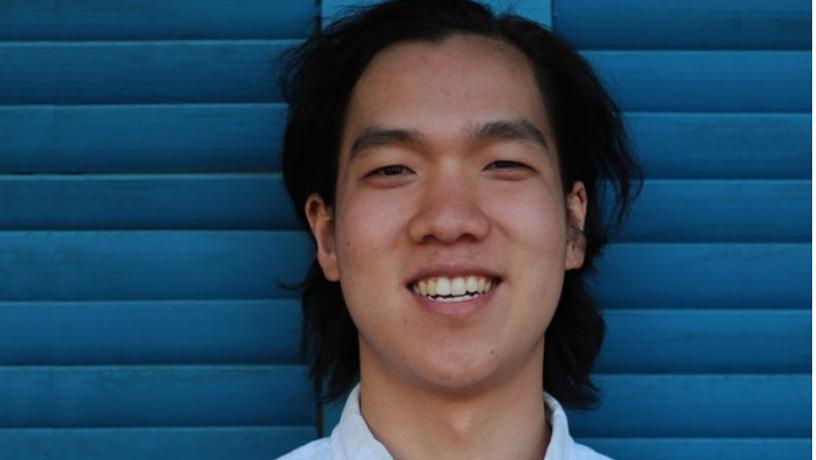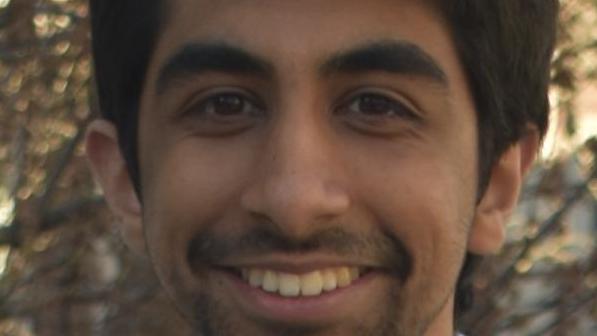Meet the Columbia Engineering 2018 Valedictorian and Salutatorian
This year’s highest academic honors are going to seniors Michael C. Tong and Rajat S. Chandra, the valedictorian and salutatorian of the Class of 2018. As valedictorian, Tong will receive the school’s Illig Medal and speak at Engineering Class Day on May 14. We caught up with the busy seniors to find out about their post-graduation plans, life lessons learned at Columbia, and more.
Michael C. Tong, Valedictorian
Major: Computer Science
Hometown: Scarsdale, New York
Plans after Graduation: Work as a trader at Jane Street, a technology-focused quantitative trading firm in downtown Manhattan.
Why computer science?
What first interested me about math (and still does) is that you learn things from a very general perspective, but when you apply it to something specific these seemingly complicated definitions actually encode very simple and intuitive ideas. When I took my first computer science class freshman year, Python with Professor Adam Cannon, it was like this whole new world opened up: I had no idea you could write code to do all these different things! Lately my interest has steered toward the more theoretical side of things, specifically complexity theory, which interests me for the same reasons math does.
The most important thing Columbia Engineering taught you:
I have always been interested in the theoretical side of things, and so being in SEAS and seeing my classmates apply what they learned in classes to tackle actual problems that they are passionate about has really made me appreciate the importance of considering the real-world applications of what you learn.
Favorite course:
My favorite course was probably Computational Complexity with Professor Xi Chen. This class is about rigorously measuring how "difficult" a problem is to compute—for example, given any set of numbers (positive or negative) how hard is it to find a subset of them that adds up to zero? There are a lot of different ways to measure how hard a problem is besides just how long it takes an algorithm to compute it, and it was cool to see how these different metrics related to each other: a problem might be easy compared to one metric, but hard compared to another.
Favorite professor:
I have a lot of favorite professors, but if I had to choose one I would say Tal Malkin. I TA'd for her CS theory course and she was very inviting and really cared about our input when it came to decisions about grading or homework. She also organizes fun events for her TA's—we all went paintballing last year and very recently did an escape room together.
Hobbies:
I've been playing piano since I was young, and it's always nice when I can find time to practice! I also play the Nintendo game Super Smash Bros. Melee competitively, and I do the crossword every morning.
What engineering for humanity means to you:
Engineering means being able to put ideas into action, and [to me] engineering for humanity means not just thinking about how to do a project but also about the implications of the project itself. Does this classifier rely on historically biased data? Will this new building being constructed contribute negatively to the neighborhood as a whole? It's important to be mindful about these things.

Michael Tong
Rajat S. Chandra, Salutatorian
Major: Chemical Engineering, with a minor in Applied Mathematics
Hometown: Fishkill, New York
Plans after Graduation: Joining Roivant Sciences in New York City as a rotational analyst working systematically to reduce the time and cost of drug development.
Why chemical engineering and applied math?
I always enjoyed the problem-solving in math and science and thought studying chemical engineering and applied math would be the best way to continue while also learning practical applications of theory to solve real-world problems while making new discoveries and having fun along the way.
The most important thing Columbia Engineering taught you:
SEAS taught me how much a group of driven people can accomplish through collaboration and innovation.
What you’ve learned from research:
I participated in chemical engineering research in Professor Kumar’s lab with a focus on controlling the arrangement of nanoparticles in polymer matrices to ultimately enhance material properties such as strength. I am grateful to have learned a lot from all my mentors and the faculty not just about chemical engineering, but also about different ways to tackle problems in general.
Senior design project:
My senior design project was building simulations of chemical plants for electrical power generation, desalination of water, and production of methanol from natural gas, with a focus on efficiency and safety.
Favorite course:
I have enjoyed many courses at Columbia, and one of my favorites was organic chemistry with Professor Ronald Breslow. Being able to take a course that excited me and challenged me early in college, with many people who became my close friends over the past four years, was a great experience.
Hobbies:
My favorite activity is playing tennis with friends. I have been playing for over ten years and still enjoy every moment I am on the court. I also love spending time with friends and family, whether it be watching lighthearted movies or just sharing stories.
Most inspirational figures in your life:
The most inspirational figures in my life are my parents. I am very grateful for all the love and support they have provided me and am also thankful to have had the opportunity to follow in their footsteps by studying engineering at Columbia.
Words to live by:
“You have brains in your head. You have feet in your shoes. You can steer yourself any direction you choose.” -Dr. Seuss.
What engineering for humanity means to you:
I would define engineering as applying knowledge in an innovative way to make improvements to what already exists or even create novel solutions based on completely new ideas. To me, engineering for humanity is specifically engineering focused on improving quality of life for healthy communities and a healthy world.

Rajat S. Chandra
